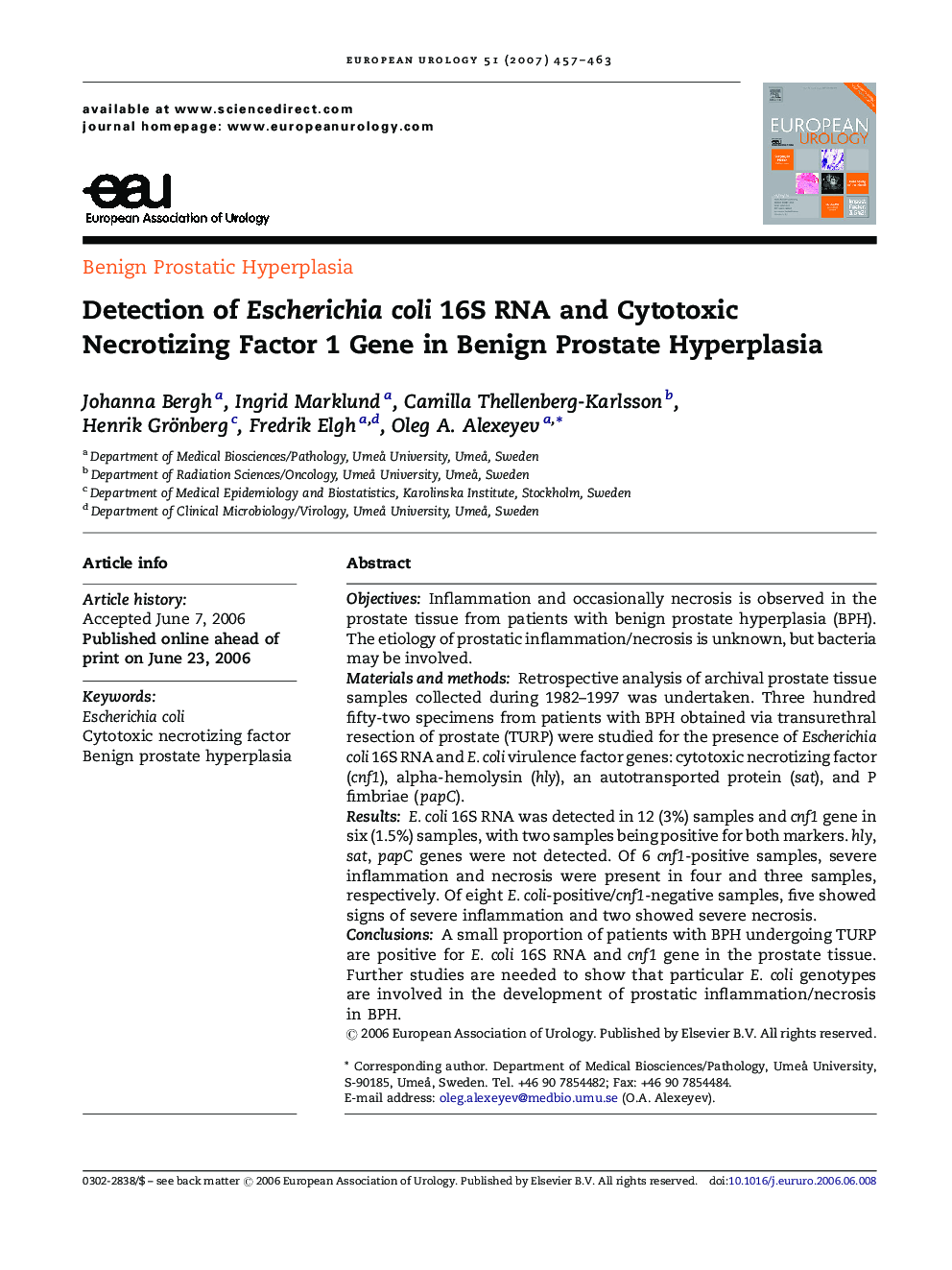| Article ID | Journal | Published Year | Pages | File Type |
|---|---|---|---|---|
| 3928914 | European Urology | 2007 | 7 Pages |
ObjectivesInflammation and occasionally necrosis is observed in the prostate tissue from patients with benign prostate hyperplasia (BPH). The etiology of prostatic inflammation/necrosis is unknown, but bacteria may be involved.Materials and methodsRetrospective analysis of archival prostate tissue samples collected during 1982–1997 was undertaken. Three hundred fifty-two specimens from patients with BPH obtained via transurethral resection of prostate (TURP) were studied for the presence of Escherichia coli 16S RNA and E. coli virulence factor genes: cytotoxic necrotizing factor (cnf1), alpha-hemolysin (hly), an autotransported protein (sat), and P fimbriae (papC).ResultsE. coli 16S RNA was detected in 12 (3%) samples and cnf1 gene in six (1.5%) samples, with two samples being positive for both markers. hly, sat, papC genes were not detected. Of 6 cnf1-positive samples, severe inflammation and necrosis were present in four and three samples, respectively. Of eight E. coli-positive/cnf1-negative samples, five showed signs of severe inflammation and two showed severe necrosis.ConclusionsA small proportion of patients with BPH undergoing TURP are positive for E. coli 16S RNA and cnf1 gene in the prostate tissue. Further studies are needed to show that particular E. coli genotypes are involved in the development of prostatic inflammation/necrosis in BPH.
